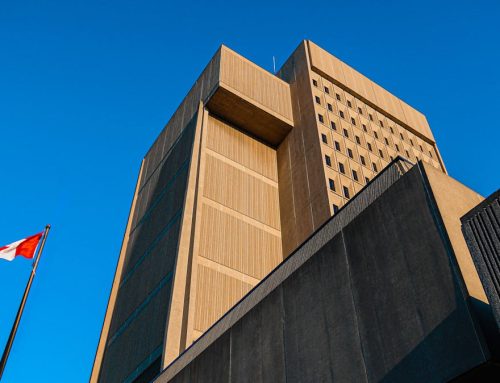After being charged with a criminal offence, you may be let out on bail. While this freedom may provide temporary relief, it often comes with court ordered conditions which must be followed. As you might expect, non-compliance can result in legal repercussions, but what are they and how do they work?
In this article, we cover the bail process in British Columbia, outline bail conditions that may be imposed, detail consequences of breaching bail conditions and explain how criminal lawyers can help you respect these conditions and protect your chances at a positive outcome.
Understanding Bail and its Purpose
Bail is a constitutionally protected right which allows individuals accused of a crime to remain out of custody while awaiting trial, unless a court determines that they need to be detained in custody. It involves a conditional release from custody, often subject to specific terms set by a judge.
This system is based on the principle of presumption of innocence (innocent until proven guilty), and makes sure the accused’s right to liberty is upheld, while also safeguarding public interest and ensuring their appearance in court as required.
The Bail Process in British Columbia
In British Columbia, the procedural aspect of the bail process commences promptly following criminal charges against an individual. Initially, an individual might be arrested by a police officer, who might release them on a promise to appear or police undertaking, or hold them to appear before a judge for a bail hearing.The criteria influencing this crucial determination encompass elements such as the nature of the alleged criminal transgression and the potential risk posed by the accused to public safety.
At the bail hearing, a judge or justice of the peace makes an assessment based on several key considerations, including the severity of the charge, the accused’s criminal history, their likelihood of appearing in court, and the potential risk to public safety before deciding whether or not the accused should remain in custody.
The presumption of innocence is a guiding principle throughout this process, ensuring that decisions are grounded in fairness and justice. Should bail be granted, the court may impose specific conditions tailored to the individual’s case, aiming to mitigate any risks while respecting the accused’s rights.
Bail Conditions: What They Are and Why They Matter
Bail conditions vary based on the specifics of each case. Common examples include:
- Curfew Restrictions: The accused must stay at a designated residence during specified hours, often overnight.
- Travel Limitations: This could restrict the accused from leaving a certain geographical area, such as the city or province, to ensure they remain within the jurisdiction of the court and available for trial.
- No-Contact Orders: Often used in cases involving violence or domestic disputes, these orders prohibit the accused from communicating with the alleged victim or witnesses, directly or indirectly.
- Substance Abstinence: In cases involving drug or alcohol-related offences, the accused might be required to abstain from consuming alcohol or using drugs and may be subject to regular testing.
- Reporting to Police: This condition mandates regular check-ins with the local police or a designated bail supervisor, ensuring the accused’s whereabouts and activities are monitored.
- Surrender of Passport: To prevent the risk of fleeing, the accused may have to surrender their passport and not obtain any new travel documents.
- Electronic Monitoring: In some cases, the accused might be required to wear an electronic monitoring device, like an ankle bracelet in cases of house arrest, to ensure compliance with curfew or geographical restrictions.
A bail violation, or non-compliance with these conditions, could lead to severe legal repercussions.
The Implication of Breaching Bail Conditions

When an individual fails to adhere to the conditions set by the court, they not only undermine the legal process but also risk their future liberty.
Upon a breach, the accused may be rearrested and face a new bail hearing. This can result in stricter bail conditions or, in more serious cases, the denial of bail altogether. The breach itself can also lead to separate criminal charges, compounding the accused’s legal challenges. Judge’s often consider breaches as significantly aggravating when considering whether to release an accused in future bail hearings. Any breach makes it more challenging to secure favourable outcomes in both current and any future legal proceedings.
Failing to comply with bail conditions can result in a criminal record, even if you are found not guilty of the original charges. A criminal record can have lasting consequences on employment, travel, and overall reputation. In cases involving repeat offences or serious breaches, the accused might face harsher sentencing if they plead guilty or are found guilty of the original charge.
R. v. Zora: A Key Legal Precedent
The Supreme Court’s ruling in R. v. Zora significantly altered the landscape for bail breaches. The court held that to secure a conviction for a bail breach, it must be proven beyond a reasonable doubt that the accused knowingly or recklessly violated their bail conditions. This ruling emphasizes the importance of the mens rea, or mental intent, in bail violations.
The Impact of this Ruling
This decision places a higher onus on the prosecution to prove intent of non-compliance. It protects individuals who may have inadvertently breached their conditions due to misunderstandings or circumstances beyond their control. This precedent ensures a fairer approach to bail breaches, aligning legal consequences more closely with the accused’s intent and circumstances.
Nevertheless, fully understanding bail conditions is important for accused persons. Although rulings such as R. v. Zora provide some degree of protection to the accused, it is best to avoid situations where intent may be misconstrued altogether.
If you need help deciphering your bail conditions or understanding other aspects of criminal law, seek out legal support.
Recent Amendments to the Bail System in Canada
Recent amendments to Canada’s bail system, effective January 4, 2024, following their Royal Assent on December 5, 2023, introduce significant changes. Notably, these reforms create a new reverse onus for serious repeat violent offences involving weapons and expand the list of firearms offences triggering reverse onus.
They also address intimate partner violence, mandating courts to consider an accused’s history of violence when deciding whether or not denying bail is the appropriate course of action. The changes reflect a concerted effort to balance the scales of justice, ensuring that public safety concerns are adequately addressed while upholding the rights of the accused.












